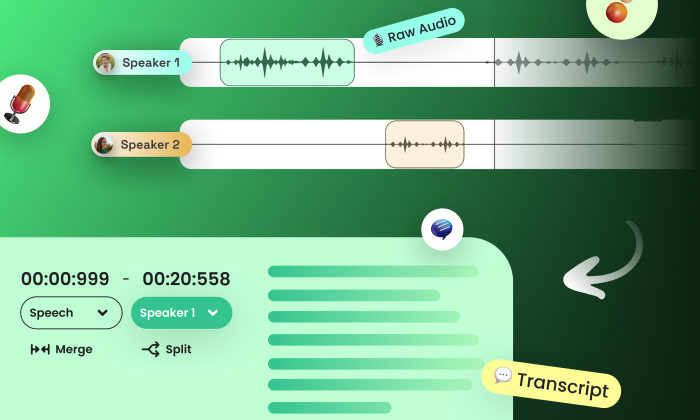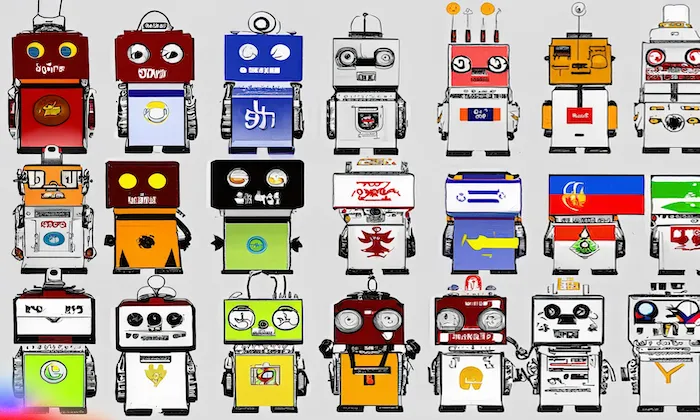Why do AI models require specialized in-car speech datasets for automotive applications?
AI Models
Automotive Applications
Speech Recognition
In the rapidly evolving world of automotive technology, precise and reliable speech recognition systems are more crucial than ever. Specialized in-car speech datasets are at the heart of developing AI models that can accurately interpret and respond to user commands in the unique acoustic environment of a vehicle. This comprehensive guide explores the importance of these datasets, how they are collected, and their real-world applications, providing valuable insights for AI engineers, researchers, and product managers.
Unique Acoustic Challenges in Vehicles
Vehicle interiors present distinct acoustic challenges compared to environments like homes or offices. These challenges include:
- Background Noise: Engines, road conditions, and even sound systems generate noise that can impact the clarity of speech recognition systems.
- Microphone Placement: Microphones placed on dashboards, near headrests, or handheld introduce unique echo and distortion profiles that must be factored into AI training.
- Dynamic Conditions: Changing factors like open windows, air conditioning, or passenger conversations continuously alter the vehicle’s acoustic environment.
Without datasets specifically designed to address these conditions, general Automatic Speech Recognition (ASR) models may fail to deliver optimal accuracy and responsiveness in a vehicle setting.
Language and Dialect Support
In-car speech datasets must support multiple languages and dialects to cater to a global user base. This linguistic diversity ensures that AI systems can efficiently serve users across regions, making them more useful and effective for automotive applications worldwide.
Real-World Applications
Specialized in-car speech datasets power various automotive AI functions, such as:
- Voice-Controlled Infotainment Systems: Hands-free control for navigation, music, and communications, allowing drivers to stay focused on the road.
- Driver Assistance Systems: Enhance safety by enabling the system to respond to commands like adjusting vehicle settings or answering queries.
- Emotion Detection: Monitoring drivers’ and passengers’ emotional states to deliver a more personalized experience, such as detecting stress or fatigue for enhanced safety.
For example, a luxury electric vehicle manufacturer used 500 hours of spontaneous in-car speech data to improve their multilingual voice assistant, significantly boosting user satisfaction and engagement.
Methodology Behind Data Collection
The process of collecting in-car speech data is detailed and highly specialized:
- Real Driving Conditions: Recordings are made from both moving and stationary vehicles across a variety of environments, including urban streets, highways, and rural roads.
- Diverse Speaker Profiles: A wide range of speakers are included, with different demographics such as age, gender, and dialect, ensuring the dataset reflects a broad spectrum of users.
- Context-Rich Utterances: The focus is on spontaneous speech and multi-turn dialogues, simulating real-world interactions in the vehicle.
Platforms like Yugo are used to gather this data, with built-in quality checks, metadata tagging, and speaker validation to ensure the dataset’s reliability and usability.
Acoustic Diversity and Metadata
In-car speech datasets ensure robustness by including:
- Varying Acoustic Conditions: Data is captured in scenarios with open or closed windows, different levels of background music, and conversations among passengers.
- Detailed Metadata: Each audio sample includes metadata such as speaker role, environmental noise, and microphone placement, allowing for precise filtering during model training.
Privacy and Compliance Considerations
In-car datasets are collected with strict adherence to privacy and compliance standards. User consent is obtained, and all data is anonymized, ensuring compliance with regulations like GDPR. This transparency builds trust with stakeholders and reinforces the importance of ethical data sourcing in the development of AI models.
Comprehensive Annotation
To maximize the utility of the dataset, comprehensive annotations are crucial:
- Speaker Turn Boundaries: Identifying when speakers change, ensuring accurate speech segmentation.
- Noise Labels: Marking environmental sounds like rain, honking, or wind that may interfere with speech clarity.
- Intent Tags: Categorizing utterances based on intent (e.g., commands or emotional expressions) for better context understanding.
These detailed annotations enable more effective model training, helping systems handle real-world complexities and nuances.
Future Trends and Innovations
As automotive AI continues to evolve, in-car speech datasets will adapt to trends such as:
- Emotion-Rich Dialogue Data: Allowing AI systems to respond more naturally and empathetically to user emotions.
- Federated Learning: Collecting data from multiple sources to improve AI models without compromising user privacy.
- Multi-Modal Fusion: Combining speech data with visual inputs, such as driver behavior monitoring, for a more comprehensive understanding of the driving experience.
Partnering for Success in AI Development
For high-performance AI models that can handle the complexities of in-car environments, specialized in-car speech datasets are indispensable. FutureBeeAI offers a suite of ready-to-use and custom-built speech datasets designed to meet the unique needs of automotive AI applications. Our datasets ensure your models are trained on the most relevant and diverse data available.
Whether you need tailored speech datasets or support in audio annotation, speech data collection, or other AI tooling, partnering with FutureBeeAI will help elevate your AI systems’ performance, reduce deployment risks, and foster innovation in the automotive sector.
Ready to power your next AI project? Explore our offerings today to enhance your AI capabilities and unlock the full potential of voice technology in the automotive industry.
What Else Do People Ask?
Related AI Articles
Browse Matching Datasets
Acquiring high-quality AI datasets has never been easier!!!
Get in touch with our AI data expert now!








